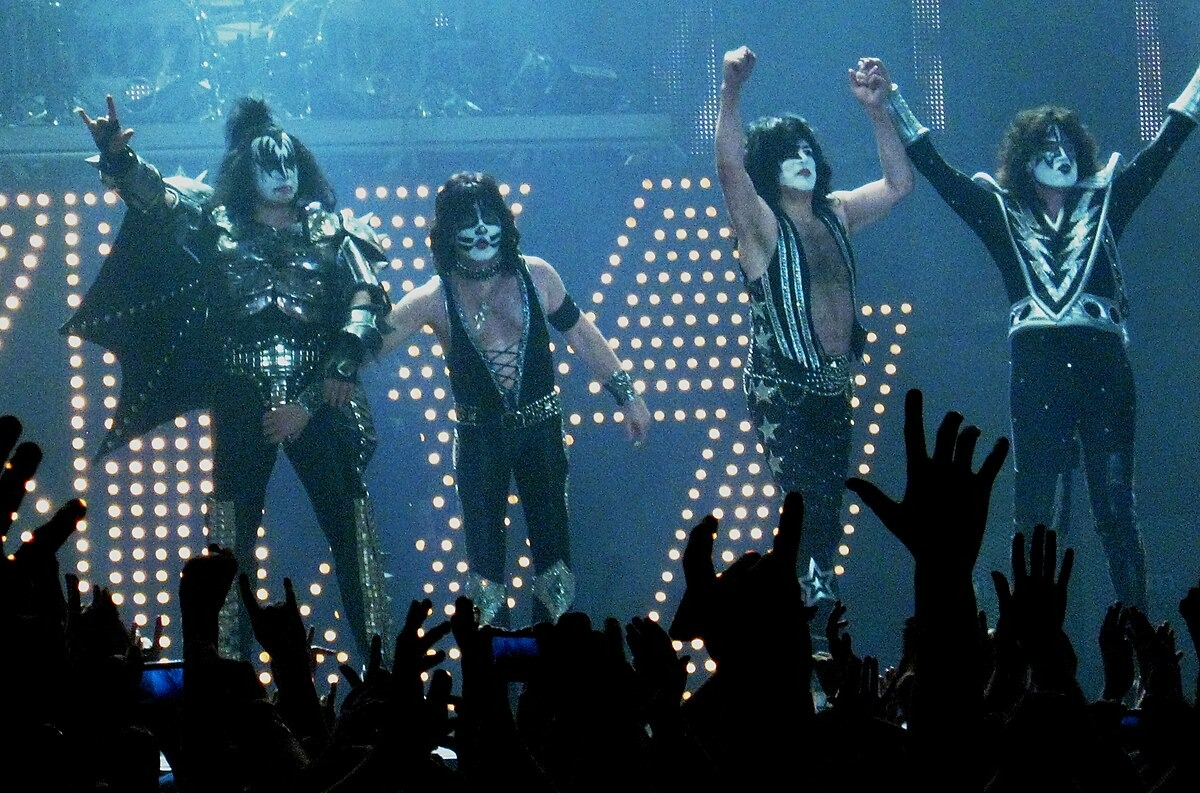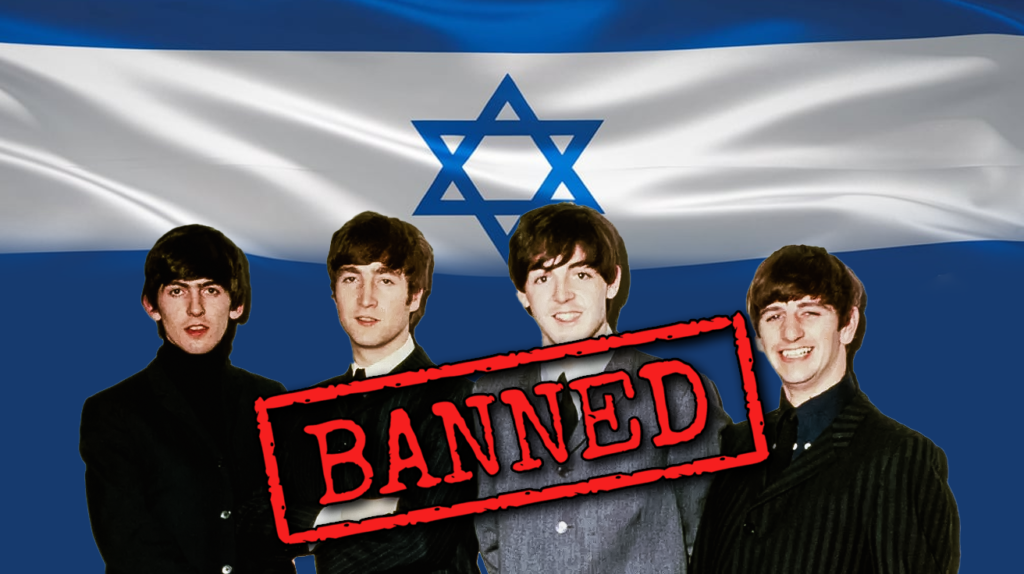
Music censorship is almost as old as dirt. From the Nazi regime’s eradication of “degenerate” music in the 1930s to modern digital platform restrictions, governments have tried to pull the plug on music for decades. And it wasn’t just rock under the microscope.
From blues music’s early radio restrictions to the moral panic over rock, all the way up to hip-hop’s lyrical scrutiny and protest songs’ political suppression – music has always been in the crosshairs. This systematic control of musical content has not only influenced artists’ creative freedom but typically reflected broader societal tensions around cultural values, political dissent, and social change. We’re covering how ten bands came under fire for one (or several) of those reasons and earned themselves bans from entire countries.
10. Led Zeppelin

Led Zeppelin encountered an unexpected obstacle in Singapore during the 1960s due to the country’s strict regulations on male hairstyles. The Singaporean government, concerned about Western influences, implemented a ban on long hair for men. This policy directly affected Led Zeppelin when they arrived for a planned concert on February 14, 1972. The band members, known for their iconic long locks, were not permitted to leave their plane unless they agreed to cut their hair.
The incident resulted in Led Zeppelin being forced to cancel their performance and return to London without setting foot in Singapore. This unusual ban highlights the clash between cultural norms and artistic expression during a time of rapid globalization. The Singaporean government’s stance on long hair was part of a broader campaign to maintain what they perceived as traditional values and social order, even at the cost of preventing internationally renowned artists from performing in the country.
9. Cannibal Corpse
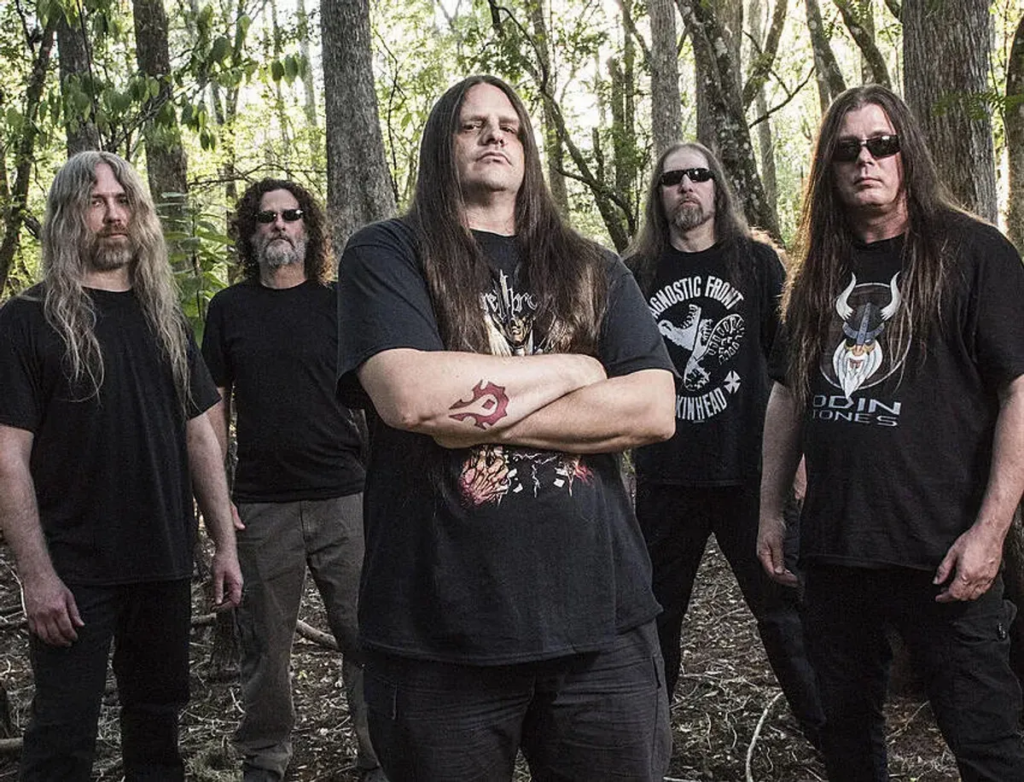
Cannibal Corpse, an American death metal band, has faced numerous bans and restrictions across the globe due to their explicit lyrics and graphic album artwork. In Germany, authorities indexed several of their albums between 1990 and 2010, effectively banning their sale to minors. These restrictions meant that the band’s music could only be sold to adults in specialized shops, significantly limiting their reach in the German market.
Australia implemented a more severe ban on Cannibal Corpse’s music in 1996, removing all of their albums from music stores nationwide. This ban lasted for a decade, only being lifted in 2006 when their albums were reclassified and allowed for sale to those over 18 years old. In Russia, the band’s 2014 tour faced significant opposition, with religious activists protesting their performances. This led to the cancellation of several shows and ultimately contributed to a broader crackdown on extreme metal acts in the country.
8. Behemoth

Polish black metal band Behemoth encountered severe opposition in Russia during their 2014 tour, resulting in a five-year ban from the country. The band’s tour was cut short after only a few performances due to intense protests from religious groups. These protesters accused Behemoth of promoting satanism and blasphemy through their music and stage presence, leading to governmental intervention and the cancellation of their remaining shows.
The controversy surrounding Behemoth extends beyond Russia, with the band facing legal challenges in their home country of Poland. Polish authorities have repeatedly charged frontman Nergal with blasphemy for his provocative statements and actions, including tearing up a Bible on stage.
7. The Beatles

In a surprising turn of events, The Beatles found themselves banned from performing in Israel in 1964. The Israeli government, concerned about the potential negative influence on the country’s youth, denied the band entry. This decision came in the wake of a chaotic incident involving another British artist, Cliff Richard, whose 1963 performance in Israel resulted in uncontrollable crowds and security concerns.
The ban on The Beatles reflected the conservative cultural climate of 1960s Israel, where leaders feared that the band’s music and image might corrupt young Israelis or incite social unrest. This decision prevented what could have been a historic performance by one of the most influential bands of the 20th century. The Israeli government officially apologized for the ban in 2008, acknowledging the missed opportunity to host such a significant cultural event.
6. The Rolling Stones
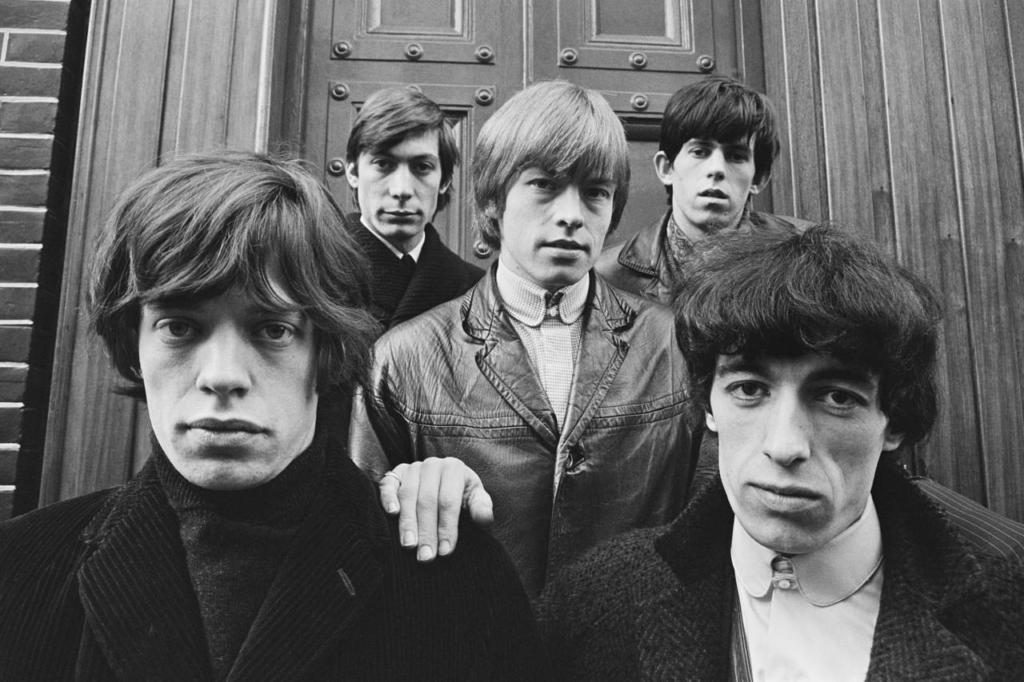
The Rolling Stones encountered a significant setback in their international touring plans when Japan banned them from entering the country in 1973. This ban stemmed from Mick Jagger’s previous drug convictions, particularly his 1967 arrest for possession of amphetamines. Japanese authorities, known for their strict stance on drug-related offenses, denied Jagger entry based on these past infractions.
The ban prevented The Rolling Stones from performing in Japan for nearly two decades, significantly impacting their ability to connect with their Asian fan base. This incident underscores the long-lasting consequences that legal issues can have on an artist’s career, especially when it comes to international travel and performances. The Rolling Stones finally managed to perform in Japan in 1990, marking a triumphant return after years of being shut out of the country due to their frontman’s past.
5. Lamb of God
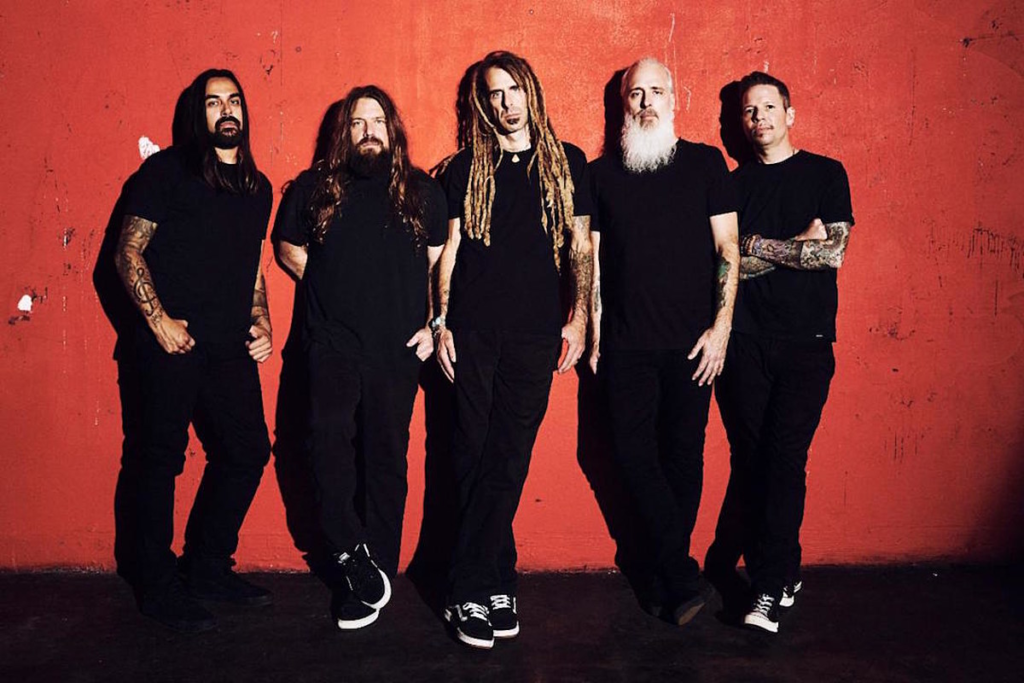
American heavy metal band Lamb of God faced a sudden ban in Malaysia in 2013 due to allegations of blasphemy. The Malaysian government canceled the band’s scheduled performance just days before the event, citing concerns about the group’s lyrical content and imagery. Officials claimed that Lamb of God’s music could be detrimental to national security and potentially hurt religious sensitivities in the predominantly Muslim country.
This incident highlights the challenges metal bands often face when touring in countries with strict religious or cultural norms. The ban on Lamb of God’s performance in Malaysia reflects a broader trend of censorship in the region, where authorities often scrutinize foreign artists for content deemed inappropriate or offensive to local values. Despite attempts to appeal the decision, the band was ultimately unable to perform.
4. Rammstein

German industrial metal band Rammstein has faced various content restrictions throughout their career, particularly in their home country. In 2009, Germany’s Federal Department for Media Harmful to Young Persons indexed their album “Liebe ist für alle da” (Love is for Everyone), effectively banning its public display and advertisement. This decision was based on the album’s explicit sexual content and violent imagery, which authorities deemed potentially harmful to minors.
While not a complete ban on their music, these restrictions significantly impacted Rammstein’s ability to promote and sell their work in Germany. The band had to release a censored version of the album to comply with regulations. This incident illustrates the ongoing tension between artistic expression and content regulation, even in countries known for their relatively liberal attitudes toward art and music. Rammstein’s provocative style continues to challenge societal norms and push the boundaries of what is considered acceptable in mainstream music.
3. The Kinks
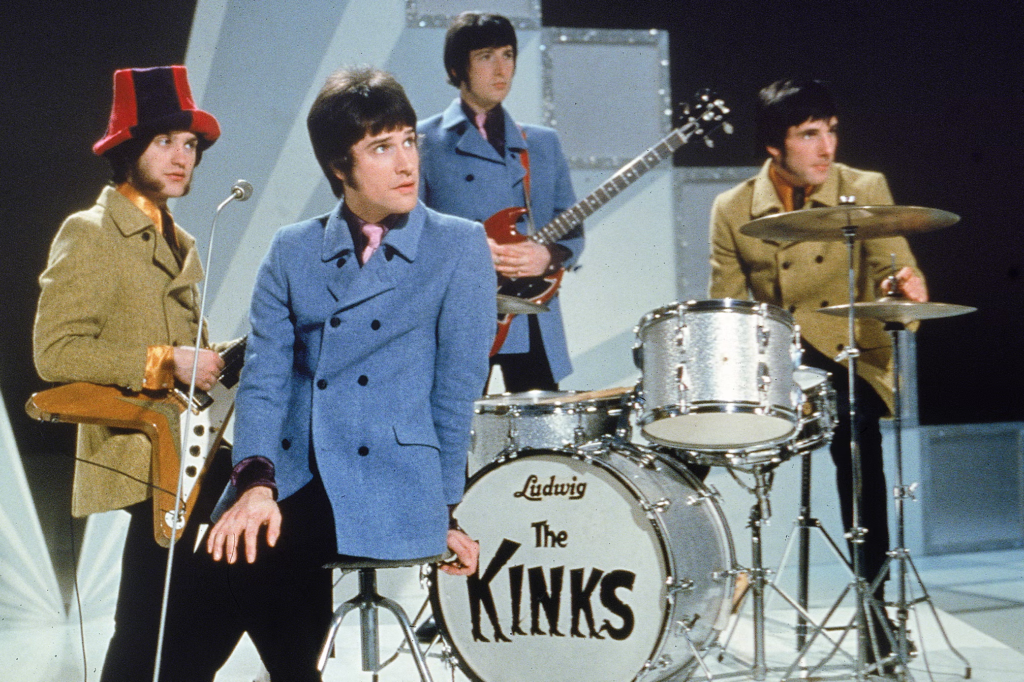
British rock band The Kinks found themselves unable to tour the United States from 1965 to 1969 due to a ban imposed by the American Federation of Musicians (AFM). This ban resulted from a combination of factors, including the band’s onstage behavior and conflicts with promoters during their 1965 US tour. The AFM, responsible for regulating foreign musicians’ work permits in the US, denied The Kinks permission to perform in the country for four years.
This ban had a significant impact on The Kinks’ career, preventing them from capitalizing on the British Invasion phenomenon that was sweeping America at the time. While their contemporaries like The Beatles and The Rolling Stones were gaining massive popularity in the US, The Kinks were forced to focus on their UK and European audiences. This period of exclusion from the American market influenced the band’s musical direction, leading them to create more distinctly British-themed material. The ban was eventually lifted in 1969, allowing The Kinks to resume touring in the United States.
2. Sabaton

Swedish power metal band Sabaton faced controversy and a ban in Russia due to misinterpretations of their historically-themed lyrics. In 2013, Russian authorities accused the band of promoting Nazism through their music, despite Sabaton’s consistent stance that their songs are historical narratives rather than political statements. This misunderstanding led to the cancellation of Sabaton’s performance at a festival commemorating the Battle of Stalingrad.
The incident highlights the challenges faced by bands that tackle sensitive historical subjects in their music, particularly in regions where such topics remain politically charged. Sabaton’s music, which often focuses on military history and significant battles, aims to educate rather than glorify war. However, the nuance of their approach was lost in translation, leading to accusations of Nazi sympathies. This misinterpretation resulted in the band being temporarily barred from performing in Russia.
1. The Bloodhound Gang

American rock band The Bloodhound Gang found themselves banned from Russia in 2013 following a controversial incident during a performance in Ukraine. During a concert in Odessa, bassist Jared Hasselhoff desecrated a Russian flag on stage, an act that was captured on video and quickly went viral. The incident occurred just days before the band was scheduled to perform at a music festival in Russia.
The Russian government swiftly responded to the provocation by canceling The Bloodhound Gang’s upcoming performance and banning them from entering the country. Russian Culture Minister Vladimir Medinsky publicly denounced the band, calling them “idiots” and stating they would not be allowed to perform in Russia. The incident escalated further when the band members were reportedly assaulted by Russian nationalists at an airport as they attempted to leave the country.











